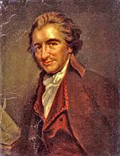
 |
NHCommonsense.org
|
How to Lose Friends
|
Please go to the new Coffee Coaster site implemented more gracefully in Wordpress. This page: http://brianrwright.com/CoffeeCoasterBlog/?p=4132 |
Someone must have loaned me this book from Toby Young when I wasn't looking.
A week or two ago, I was scrounging thru my top bookshelf for some lighter reading to accompany me on a trip up north, when I see How to Lose Friends peeking out from between a dog-eared road atlas and a software manual. I read a couple of pages and said this is just right.
Toby Young is a journalist, highly educated on both sides of the pond—Harvard, Oxford, and Cambridge—who has spent most of his adult life writing about high and low culture for various publications. His father is Michael Young, a Labour life peer and pioneering sociologist who coined the term "meritocracy," and his mother is the novelist, sculptor and painter Sasha Moorsom. The focus of Young's book is the world of glossy journalism in the swingin' 1990s as a feature writer for Vanity Fair.
Young steers clear of discussing the occasional exquisite political journalism for which Vanity Fair is known—e.g. articles about the Nixon Watergate affair, exposes that led to the prosecution of Big Tobacco, and today several columns documenting the unmitigated disaster of the Bush Years—and gets right to the sex and the city, New York version. (Indeed, Young comes along at just the time that Candace Bushnell is writing her column in The New York Observer that would become the famous HBO series... and now, the movie (which I review here). They're friends.)
He's sort of a testosterone-and-alcohol-afflicted male version of Carrie Bradshaw, and more doggedly politically incorrect. Toby Young had become the publisher of an idealistic London-based periodical called Modern Review, a review of "low culture for highbrows," which eventually fails. He is then is recruited by his friend, Graydon Carter— cofounder of the irreverent Spy magazine[1] and now the editor of VF—to come to New York and write for the magazine. Perhaps this professional arrangement with Carter and VF can work out, provided Toby jettisons all his 'hard journalistic' instincts and plugs himself into the mag's wretchedly excessive celebrity-driven materialism.
Well, Young never quite fits in. He also seems to have a knack for doing exactly the wrong thing at the wrong time—such as hiring a strippergram to come to Vanity Fair's offices to spoof a friend of his, and it turns out to be Take Our Daughters to Work Day—that further alienates him from this Manhattan vanguard of the Beautiful People. It seems the job of this journalistic salient, highly affluent in its own right, is to oblige the positive 'real news' publicity needs of the rich and famous souls it covers. I.e. contradicting the ideals of independent journalism, or "taking the money and running it."
The advertising funding we're talking about is truly unbelievable!
To properly slice and dice such a superficial, money-driven world would warrant a flotilla of Hunter Thompsons, Michael Moores, John Stossels, Ben Hampers, and other gonzo/investigative stalwarts. But these guys dwell in the realm of politics and business. In the house of style and fashion, in the world of The Devil Wears Prada, in the case of New York glossy-magazine culturati, Mr. Toby Young (though I'm sure others exist) will have to do. Though he writes as incisively, even as bitingly, as these others, he comes across as basically a nice guy who gives you a full dessert of humor with his revelatory porridge.
With respect to observations of American culture, I find Young a tongue-in-cheek, modern-day Alexis de Tocqueville. For example, here's his comment on
the snobbery of his partying New Yorker buds vis a vis the London scene:
In London parties had been noisy, bacchanalian affairs where all class distinctions were quickly forgotten; in New York they were stiff, rather formal occasions in which differences in status were, if anything, even more pronounced. I blamed this on the fact that not nearly enough alcohol was consumed. America is currently undergoing one of those periodic bouts of repression that punctuate its history. All the pleasures I was expecting to find in Manhattan—illicit sex, the perfect dry Martini, Bolivian marching powder [cocaine]—have been completely pathologized and anyone caught enjoying them is immediately press-ganged into joining a twelve-step program. It's miserable. — page 98
The Puritans strike again. How did H.L. Mencken put it?
“The haunting fear that someone, somewhere, may be happy.”
But it's Young's observations during a period back in his 20s when he was invited courtesy of a Fulbright Scholarship to Harvard as a "Special Student" that I find spot on [i.e. dead nuts accurate]. Noticing how students and faculty contorted themselves into intellectual/emotional pretzels to avoid any unholy tinge of anti-PC, Young became sympathetic to the countervailing wisdom of Professor Allan Bloom and his Closing of the American Mind:
I agreed wholeheartedly with Bloom, but what particularly appalled me about political correctness wasn't the creed itself but the dogmatism of its proponents. This point has been made so often it's become a cliche, but after three years at Oxford with its almost decadent atmosphere of intellectual freedom, I was shocked by how little dissent was tolerated at Harvard. Anyone who disagreed with the new orthodoxy was automatically branded a racist or a sexist or a homophobe—and the consequences of this were as serious as they had been for those branded communists during the McCarthy era. — page 18
Then later on, as his welcome from the Masters of the Universe at Vanity Fair and other connections around town has worn out, Young begins to opine on whether these self-inflated masters he's been working with are truly where they are because of merit... or as in England, their success stems from a money-power caste system—in England acknowledged, in America stridently denied:
Evidently, America can stake no greater claim to being a meritocracy than Britain. This makes triumphalism of its most successful citizens totally indefensible. America is a faux meritocracy in which abhorrent levels of inequality are justified by an appeal to a principle of social justice that, however sacred, has yet to be implemented. To use a baseball analogy, America's most successful citizens were born on third base and think they've hit a triple. — page 241
But I don't want to give you the idea Young is blaming his own lack of success on something beyond his noted shortcomings, which he details throughout in generally relaxed and candidly comedic terms. It's simply he has peculiar inability to "go with the flow" of relaxed-standard, convenient-to-the-upwardly-mobile qualities of what passes for journalism in an era of steadily declining freedom:
...The average New York journalist today is a far cry from the large-souled heroes of the Roaring 20s. He's a terrified conformist, an emasculated drudge. In London, I'd seen chartered accountants behave with more abandon.
After spending my first year doggedly going to every literary party I could, always searching for that elusive crowd of brilliant, fearless writers, I realized that the circle I'd been hanging out with back in London was far closer to the Algonquin Round Table than any group of journalists I was likely
to encounter in Manhattan.... In the five years I spent in America I didn't meet anyone who was more like Dorothy Parker than her [Julie Burchill, noted British writer]. — page 322
Well, plenty of material here, and I haven't even gone into the author's insights on sex, love, and relationships... or his admitted fascination with Hollywood celebrities. There's more to the book than meets the title, and it's an entertaining read to boot. Hey, check it out: How to Lose Friends is now a movie, and was released in early October 2008. DVD no doubt to soon follow.
###
[1] From the Wikipedia article on Spy: "It specialized in intelligent, thoroughly researched, irreverent pieces targeting the American media and entertainment industries. Some of its features attempted to present the darker side of celebrities such as Arnold Schwarzenegger, John F. Kennedy, Jr., Martha Stewart, and especially the real-estate tycoon Donald Trump and his then-wife Ivana Trump. Pejorative epithets of celebrities became a Spy trademark."
###
 |
 |
|||
| New Pilgrim Chronicles Forum |